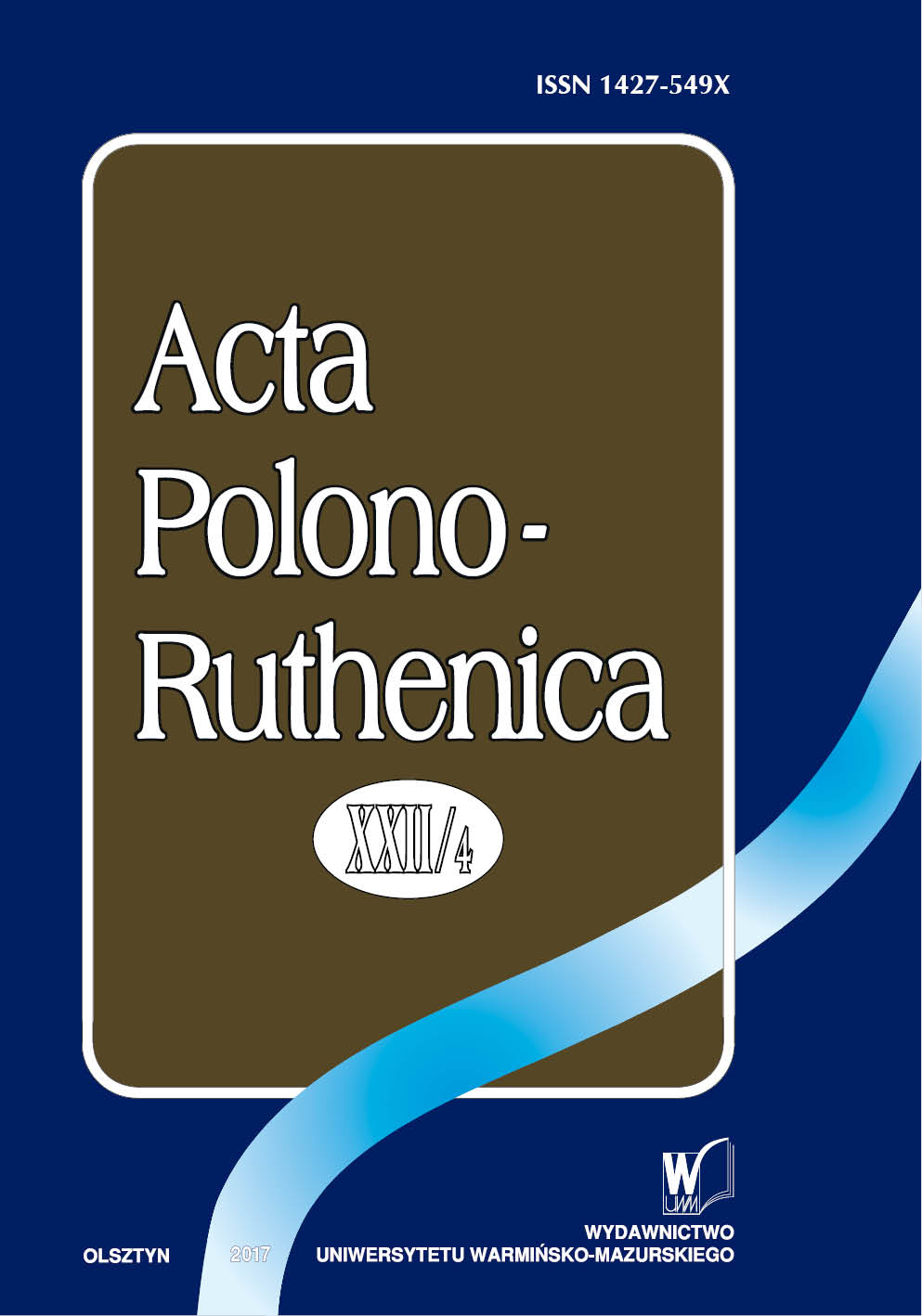Poezja Jewhena Małaniuka w przedwojennych tłumaczeniach Józefa Łobodowskiego
Yevhen Malanyuk’s poetry in Józef Łobodowski’s pre-war translations
Author(s): Anna Choma-SuwałaSubject(s): Studies of Literature
Published by: Wydawnictwo Uniwersytetu Warmińsko-Mazurskiego w Olsztynie
Keywords: poetry; translation; Ukrainian literature; interwar period; Yevhen Malanyuk; Józef Łobodowski
Summary/Abstract: Józef Łobodowski’s pre-war translations were published in the weekly “Wołyń” which he was the editor of in the years 1937–1938, and in “Biuletyn Polsko-Ukraiński”. Among them, the translations of poems by Yuriy Kosach, Natalya Lyvitska-Kholodna, Oleh Olzhych and Yevhen Malanyuk can be found. Łobodowski had personal contacts with was Malanyuk as he was his long-time acquaintance.They both published their works in “Biuletyn Polsko-Ukraiński” and in “Kultura” based in Paris. Łobodowski translated in total over 20 works of the Ukrainian poet, the majority of which were published in “Kultura” after the war, together with a number of literary critical articles, such as Scylle i Charybdy poezji ukraińskiej (The Scyllas And Charybdas of the Ukrainian Poetry), Poezja Jewhena Małaniuka (Yevhen Malanyuk’s Poetry), Ostatnia wiosna (The Last Spring), or a memoir notePo śmierci Małaniuka (After Malanyuk’s Death).In the 1930s, Łobodowski became interested in the poetry from the collection Земля й залізо(Earth and Iron). In the interwar period, three translations were published: An Inscription on a Book of Poems (Напис на книзі віршів), 13 November 1920 (13 листопада 1920 р.) and fragments of theEpiphanies (Прозріння) cycle.In his translations, the author for Lublin was guided mainly by the principle of the hierarchy of values and equivalence. His works include Malanyuk’s poems close to his own poetry. Moreover, in his translation work he tended to avoid texts speaking against Poles and dividing the two nations. Łobodowski is characterised by his interpretational talents and the ability to preserve the main meanings of the original versions. In spite of the fact that his translations are characterised by dynamic equivalence, they are not spontaneous, they do not stem from emotions, but they have a solid theoretical foundation and are based on his excellent knowledge of the Ukrainian poet’s works.
Journal: Acta Polono-Ruthenica
- Issue Year: 4/2017
- Issue No: XXII
- Page Range: 84-97
- Page Count: 14
- Language: Polish

